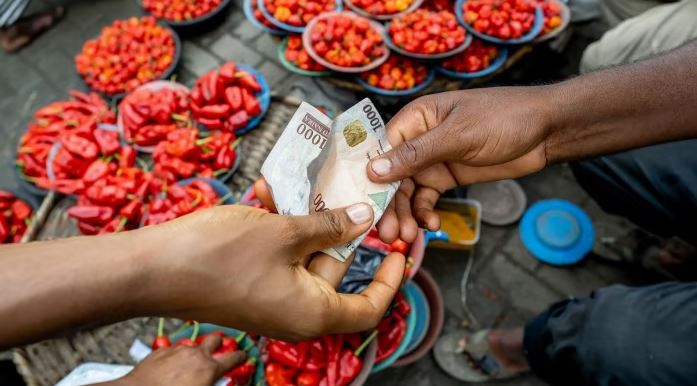A common sentiment in the world of trading is that markets rarely move in a straight line. Prices rise until they encounter resistance and then begin to decline. This cyclical pattern, known as a trend, may also be evident in Nigeria’s inflation landscape.
After months of steady growth, the headline inflation rate finally reached a peak, falling to 33.40% in July 2024 from 34.19% in June, according to the latest Consumer Price Index report by the National Bureau of Statistics. Although the decrease is marginal (0.8%), it marks the first decline in Nigeria’s headline inflation rate since December 2022.
While core inflation continued to climb, food inflation saw a slight decrease to 2.47%, down from 2.55% reported in June 2024.
A significant factor behind this unusual decline in the monthly inflation rate is the proposed suspension of tariffs on food imports. Weeks earlier, the federal government announced a tax waiver on select foods imported into the country in a bid to ease the rampant hikes in food prices. Given that food prices constitute the bulk of the nation’s inflation basket, the approval of duty-free imports of essential staples was met with public acceptance.
No doubt the news about the approval of duty-free imports has caused a dramatic shift in the inflation curve. The palliative measure is expected to increase the market supply of wheat, rice and other staples, potentially leading to further dips in food prices in the coming months.
Still there are other factors at play beyond the tax waiver. It’s harvest season for farmers, and the markets are witnessing a surge in the supply of yams, plantains and perishable food items like tomatoes and pepper. Prolonged tensions between farmers and cattle herders in the middle belt region have caused severe strain in the country’s food production. Many farmers abandoned their farms, fleeing the escalating insecurity in the region. These conflicts still persist today, but reports of farmer-herder clashes have been less frequent of late. “The decrease in insecurity in the northern region and the reopening of siloes there have also contributed to this downward trend,” notes Abraham Osahon, a financial manager at a Lagos-based corporate firm.
Despite the marginal decrease in July, can we expect further declines in inflation?
Having hit a resistance, prices fall to support levels, where they linger for some time before bouncing back up to resistance levels again. Osahon suggests that inflation could continue to decline under certain conditions. “Looking ahead, we can expect a continued downtrend in inflation if the refineries become fully operational and security conditions continue to improve.”
Given that prices in Nigeria exhibit an “anti-gravity” trait, where commodities hardly ever fall to their previous prices, it is hardly likely that a subsequent decline in headline inflation will result in a corresponding drop in market prices. “This policy [of tax waiver] has its own set of pros and cons that must be carefully considered,” Osahon adds. Nevertheless, the cost of food staples and essential commodities may stabilise during the 6-month window for duty-free imports. Until then, households and restaurants may heave a sigh of relief.
Nigeria's inflation rate dropped marginally to 33.40% in July 2024 from 34.19% in June, marking the first decline since December 2022. Core inflation continued to rise, but food inflation slightly decreased to 2.47%. The decrease is attributed to the suspension of tariffs on food imports and the harvest season increasing the supply of staple foods. Additionally, improved security in the northern region contributed to the downward trend. However, the long-term stability of inflation rates involves multiple factors, including the operational status of refineries and ongoing security conditions.
Financial expert Abraham Osahon suggests that while the anti-gravity pricing trait of Nigerian commodities implies that prices rarely fall back to previous levels, the policy allowing duty-free imports for six months might stabilize food prices temporarily, providing some relief for households.






